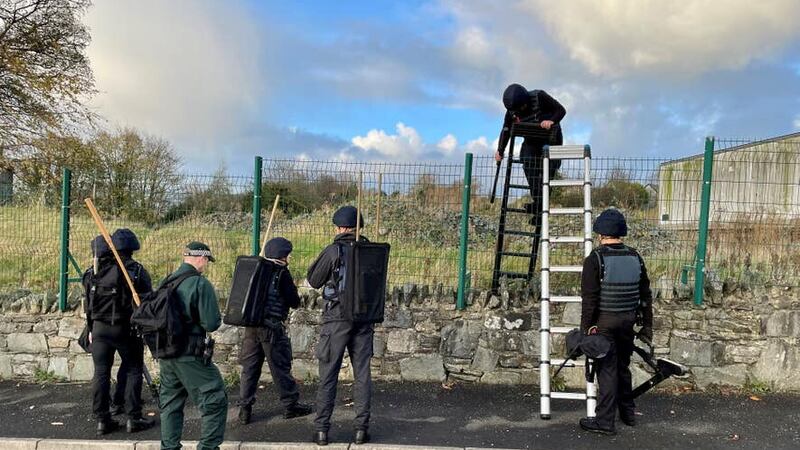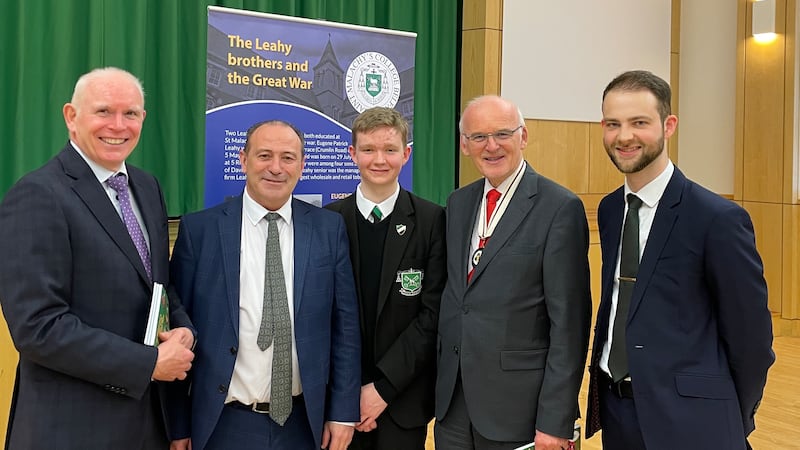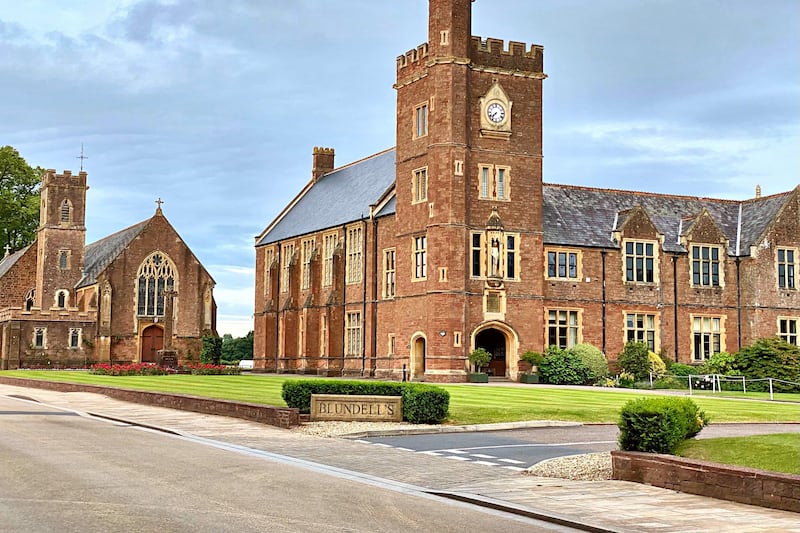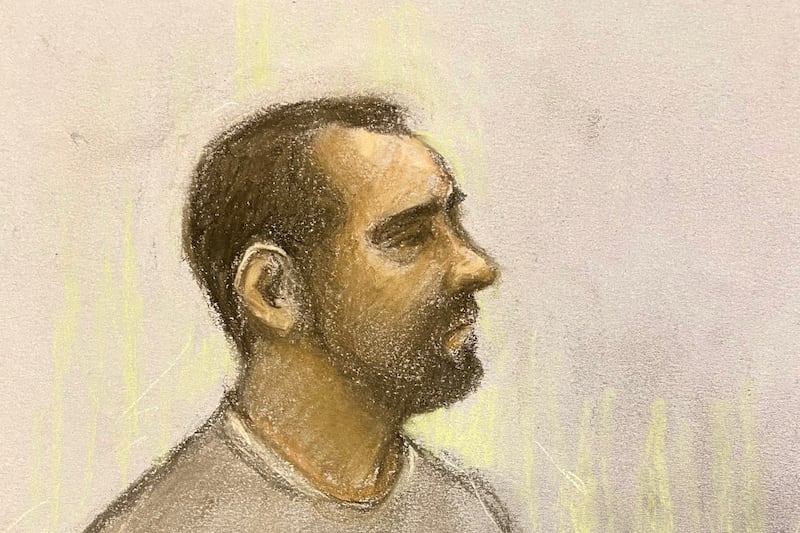A man charged in connection with the attempted murder of two police officers in Co Tyrone has a “hatred” of the police service and is willing to carry out serious actions, a court has been told.
Charlie Love is accused of two counts of attempted murder, causing an explosion likely to endanger life or cause serious injury to property, and possessing explosives with intent to endanger life or cause serious injury to property.
The 28-year-old, with an address in Bridge Street, Strabane, appeared before Dungannon Magistrates’ Court via video-link on Wednesday.
A PSNI detective constable told the court that the two officers had been on patrol in the Mount Carmel Heights area of Strabane on November 17 when a bomb was detonated at the side of their vehicle.
Neither officer was injured in the attack, which caused a major security alert in the area, affecting more than 1,000 residents.
Following a search operation, police discovered a command wire behind a nearby fence, and the accused’s DNA was found on it, he said.
The command wire led into a building site at a disused school, he added, and officers believed the end was connected to a firing mechanism, which was located close to a tree stump in the area.
The court was told that a military grade explosive used in the attack.
Love was arrested the day after the blast and his phone was seized.
Throughout two days of interviews, Love gave no comment, including his knowledge of the location.
The court heard that a drill was found within the building site and that it had been modified, with two wires protruding from it.
A number of other items were removed for forensic testing.
Swabs taken from the trigger of the improvised firing mechanism returned a DNA profile of Love, as did swabs from the drill.
The PSNI detective constable told the court: “The command wire which was closest to the firing mechanism has yielded a profile of Charlie Love and the metal post which is within the site of the explosion also yielded a profile of Charlie Love.
“The mobile phone has been subjected to examination and there’s a clear pattern of this in sending and receiving messages on the day of the incident.
“However, the last outgoing message stops at 21.11 hours. The next outgoing activity on this phone is 23.49 hours that night, leaving quite a considerable period of time where there is no outgoing activity on this phone.
“There is incoming activity around the time of the explosion, which involves a phone call to that phone which was answered. But we have not been able to identify who answered the phone at that time and an investigation showed that that phone can be answered without knowledge of the passcode.
“Mr Love was then arrested on Tuesday morning and taken to Musgrave serious crime suite for questioning.”
The court was told that Love provided a pre-prepared statement and said he did not know how his DNA had got on to the drill or why it was in that area.
“However, he does a bit of manual labour work and he may have been in and around hardware shops,” the officer added.
Love’s barrister Seamus Lannon, said DNA is a “very transmittable product”.
“Isn’t it the case that I can take a swab of your spit, or I can take a cigarette butt that you discard, or a cup of tea that you discard, and I can then take a sample of your DNA and plant it wherever it suited me to plant?” he asked.
The PSNI detective said he was not able to answer the question because he is not a forensic officer.
The court was also told that the New IRA has claimed responsibility for the attack.
The officer objected to bail, stating concerns of flight risk, reoffending and interfering with witnesses.
He added: “Mr Love has been forensically linked to a firing mechanism command wire at the scene of an explosion, which was an attempt to murder police officers using an improvised explosive device containing a military grade explosive.
“Any person, I would say, who is prepared to detonate a bomb in attempt to kill any person is an extremely dangerous individual and clearly has no regard for human life.”
The officer said that previous incidents Love was involved in showed he had a “hatred” of police.
“It is clear this man has a hatred of the police service and is willing to go to the most serious of actions, which could have had grave consequences,” he added.
“There is also fear for the lives of civilian members of the public. Not only was the PSNI vehicle in that area, but there was also a civilian vehicle in the area at the time.
“This bomb was detonated in a residential area. Mr Love is a member of Saoradh, who, we would say, are the political wing of the New IRA and in fact attended a protest around police involvement in this a few days after he was initially arrested.
“Saoradh and the New IRA point-blank reject the peace process and the New IRA are intent on a violent armed struggle.
“This was clearly a terrorist incident and his involvement shows he has a key part to play in this.
“If released on bail, I fear that he will continue to engage in terrorist activity in which next time persons may not be so fortunate to escape injury.”
He said the New IRA has supporters all over Ireland.
Judge McSorley refused bail on the grounds of risk of further offending and risk to the public generally.
“It’s clear to me that Mr Love at least harbours sympathies towards the movement,” Judge McSorley said.
The case was adjourned until January 5.







